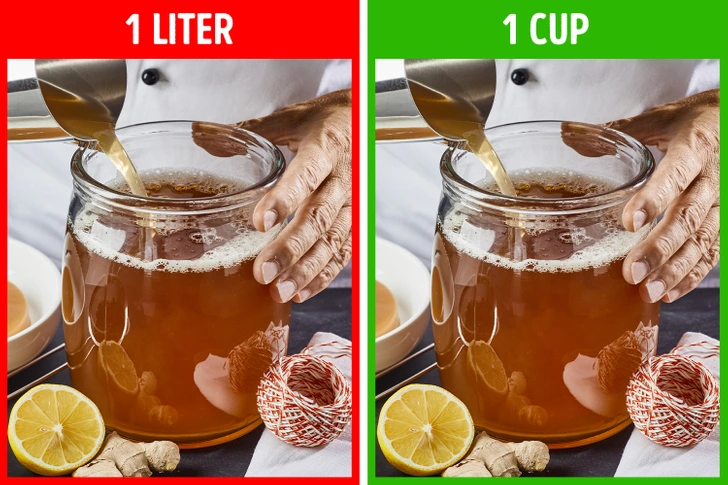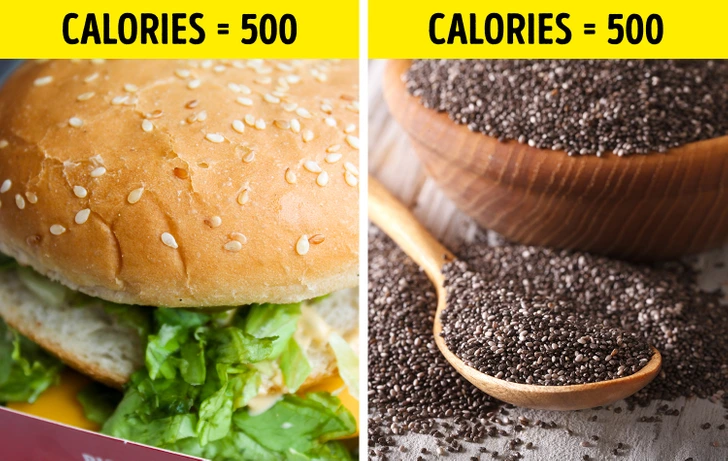Ever since the Mediterranean diet gained recognition for its health benefits, people have become more aware of the connection between food and health. However, the attention given to certain “superfoods” can sometimes overshadow the importance of a varied and balanced diet. Here’s a look at what can happen when you consume even healthy foods in excessive amounts:
1. Carrots

Carrots are rich in beta-carotene, which the body converts into vitamin A. While vitamin A toxicity is rare because the body regulates the conversion process, consuming too many carrots can lead to carotenemia. This condition causes a yellowish tint to the skin, which is harmless and usually resolves once carrot consumption is reduced.
2. Kombucha

Kombucha, a fermented tea popular among health enthusiasts, offers digestive benefits and can promote gut health. However, it also contains FODMAPs, which can cause bloating and digestive discomfort if consumed in excess. Moderation is key to enjoying its benefits without the downsides.
3. Water

Drinking too much water can disrupt the balance of electrolytes in your body, particularly by lowering sodium levels. In extreme cases, this can lead to water intoxication, causing swelling in the brain due to the skull’s limited capacity. Although rare, this has been observed in athletes who drink excessive amounts of water or in individuals with certain kidney issues.
4. Avocado

Avocados are high in fiber, vitamins, and monounsaturated fats that can be beneficial for heart health. However, they are also calorie-dense, with one avocado containing about 240 calories. Overconsumption can contribute to excessive calorie intake, which may lead to weight gain and associated health problems. Moderation, such as eating half to one avocado daily, is recommended.
5. Beetroot

Beetroot is rich in vitamins and minerals, and its nitrates can help lower blood pressure. However, these nitrates can convert into nitrosamines in the body, which are linked to certain health risks. Therefore, it might be wise to limit beetroot intake, especially if you consume a lot of red meat.
6. Seaweed

Seaweed is a valuable source of vitamin B12, making it a good option for those on plant-based diets. It is also high in iodine and fiber, which can aid in weight management. However, excessive iodine intake from seaweed can lead to thyroid issues, and seaweed may contain heavy metals depending on its source. Moderation is important to avoid these potential problems.
7. Soy and Its Derivatives

Soy products are nutrient-rich and provide high-quality protein. However, if you have thyroid issues or are on hormone medication for hypothyroidism, soy might interfere with treatment. Although research is ongoing, it’s prudent to monitor soy consumption and consult with a healthcare provider if you have thyroid concerns.
8. Chia Seeds

Chia seeds are often praised for their omega-3 content, but their health benefits, particularly for cardiovascular health, are not as well-supported as those from fish sources. Additionally, chia seeds are calorie-dense, with 100 grams containing around 500 calories. Therefore, consuming large quantities can contribute to excessive calorie intake.
In summary, even healthy foods can pose risks when consumed in large amounts. The key is moderation and maintaining a balanced diet to ensure you receive a wide range of nutrients without overloading on any single food. What are your thoughts on overconsuming these “healthy” foods? Share your views in the comments!


